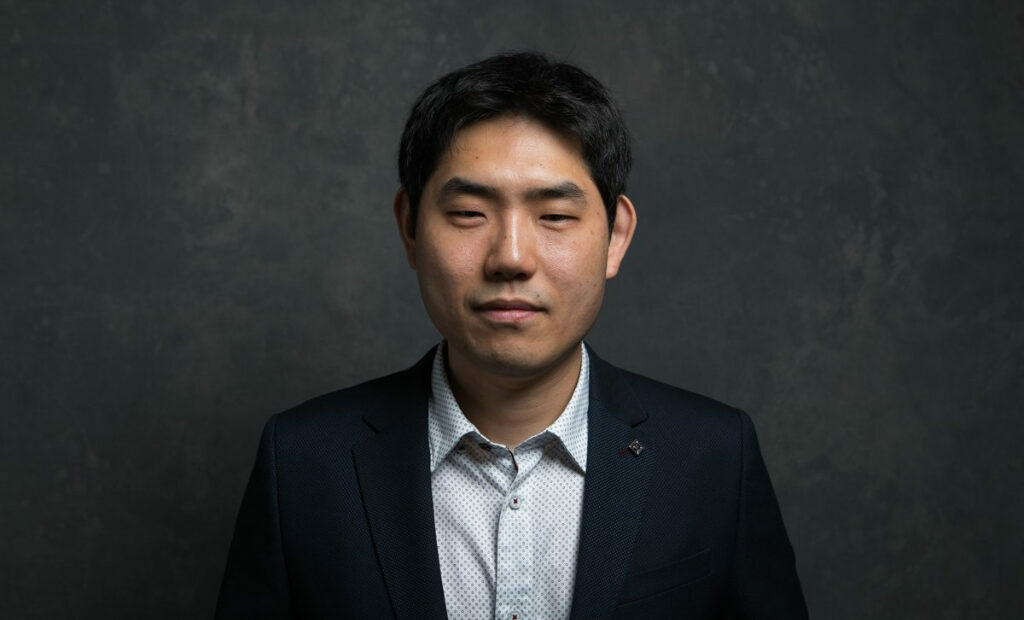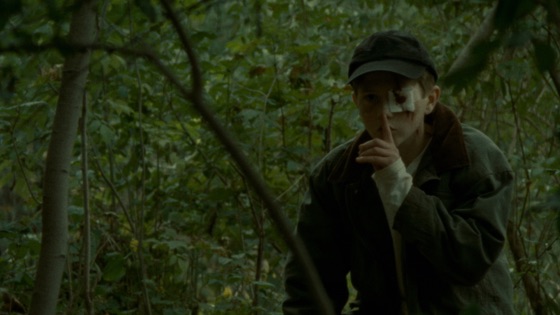Albert Shin is a Korean-Canadian filmmaker, taking on the roles of director, writer, and producer in many projects. He is best-known for his Canadian Screen Award-nominated film In Her Place (2014) and the soon-to-be released Disappearance at Clifton Hill. Outtake had the pleasure of speaking with Shin about the writing process, and directing of his latest movie.

What inspired the story of Disappearance at Clifton Hill?
Actually it was inspired by, believe it or not, my own life. The sort of the kidnapping that you see in the prologue in the film was based on something that I saw. We actually ended up recreating it in the exact same place where it happened for me. My parents were immigrants from Korea and when they immigrated to Canada, they settled in Niagara Falls. They bought a motel in the shadow of Clifton Hill, very much like in the film. All of that stuff is inspired by my own upbringing and my personal history.
That town is a very unique place, a border town between the US and Canada, and very much a tourist town. It’s the ‘honeymoon capital of the world’. Clifton Hill has this sort of Hall of Mirrors feel that I thought would be perfect for a noir-mystery setting, and it had never really been used as a cinematic setting in an interesting way before. I thought it was an interesting opportunity to take a place, take a story, and have them reflect one another.

Do you think being inspired by real events makes a difference to how you tell the story?
Absolutely, without question. It’s not an autobiography, it’s not supposed to be anything like that but there is hopefully a somewhat spiritual authenticity to the journey of the film and in the worldbuilding. The story has a lot of truth to it in how a traumatic or visceral experience as a child impacts you long-term.
There was a recurring discussion of truth and what truth is. Was that motif something you planned from the beginning?
Yeah, absolutely. It was actually a huge component for me. It’s a restrictive narrative so everything is told through Abby’s perspective, but you know she turns out to be kind of an unreliable narrator in a lot of ways. That was to underpin this idea of truth and memory and their relationship with each other. We’re currently having widespread discussions on facts, and the relativity of it all. This was my way of making it about what’s happening today in this world. Maybe it’s too heavy-handed, but it was very much in response to the times we live in.

Did you always know how the story was going to unfold or was it something that developed as you wrote?
A bit of both. The creation of Abby helped to direct how the story was going to unfold and where it was going to go. In terms of the details of it, it was an evolution of just screenwriting and then production and editing and everything else. For me, I did want to ground it as a character piece. It’s a mystery film so there are red herrings and there are breadcrumbs to follow, and all this stuff that the mystery genre has. These aspects of mystery stories are fun and important and make for an enjoyable experience. But if it didn’t work with how we constructed the Abby character then it was changed. Abby’s character always came first in terms of how we proceeded with the creation of this story.
How do your writing and directing processes work together?
In Disappearance at Clifton Hill, my co-writer was a huge asset in terms of helping create that delineation. When I’m directing, it really does become a thing where I try to disassociate myself. My process is trying to embolden the actors to bring their own sensibilities to the characters, and if that requires sometimes going off-script or improvising, or having a discussion as we’re creating this thing, then that’s an important component for me.

Your cinematography uses reflective surfaces a lot. What did you hope to say with this directing choice?
Disappearance at Clifton Hill is a film about facades and about projecting ideas. Abby is projecting her own sense of adventure and a sense of her own grandeur, where she wants to put herself in the middle of some fantastical story, and where she is on the precipice of something really important. She’s injecting herself into this story, and she’s making herself the heroine of this thing.
By the end of the film, there is no bad guy with a gun to her head telling her exactly what happened, so I had to ask myself, ‘how do I make a film that’s engaging and suspenseful and interesting?’ There is no ticking time bomb – the entire film is her own manifestation. It’s her projecting this out into the world. It was almost like I actively removed all these things that raise tension, and just made it about this character falling down the rabbit hole.

What was your favourite scene to film?
There were a lot of them, for sure. The prologue was an interesting one because I was recreating a memory from my own childhood which was, like I said, shot in the exact same place where it happened for me. That was very surreal. There’s a scene where we introduce this character played by David Cronenberg as he emerges out of the water, which was fun to do.
Tuppence [Middleton] was amazing because she’s meeting these new characters like every day, which was another fun component to the film because every day it was like, ‘oh, we’re going to be meeting this character and doing something new with this character’ which made everyday fun and not monotonous.

Do you have a dream project you’d like to do in the future?
I do! It’s actually not a big movie or anything. I’ve pitched it to people, and it doesn’t sound that good as a pitch. It’s a Korean film, a romance film. It’s like a middle-aged romance film in rural South Korea. I consider it my magnum opus. I’ve been developing this film for 10 years. If they were like ‘you only have one more movie to make, what’s it going to be?’ this would be the one. That idea is the most personal one to me and hopefully, I get to make it one day.
Disappearance at Clifton Hill releases on VOD July 20th and DVD August 3rd. Read our review here.
